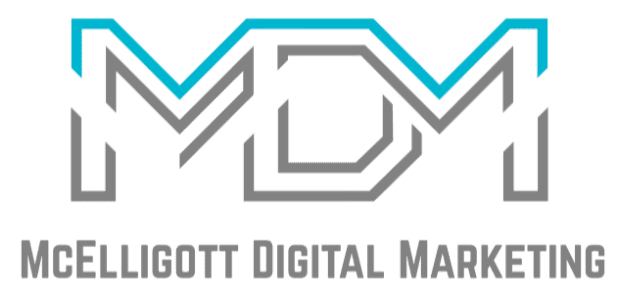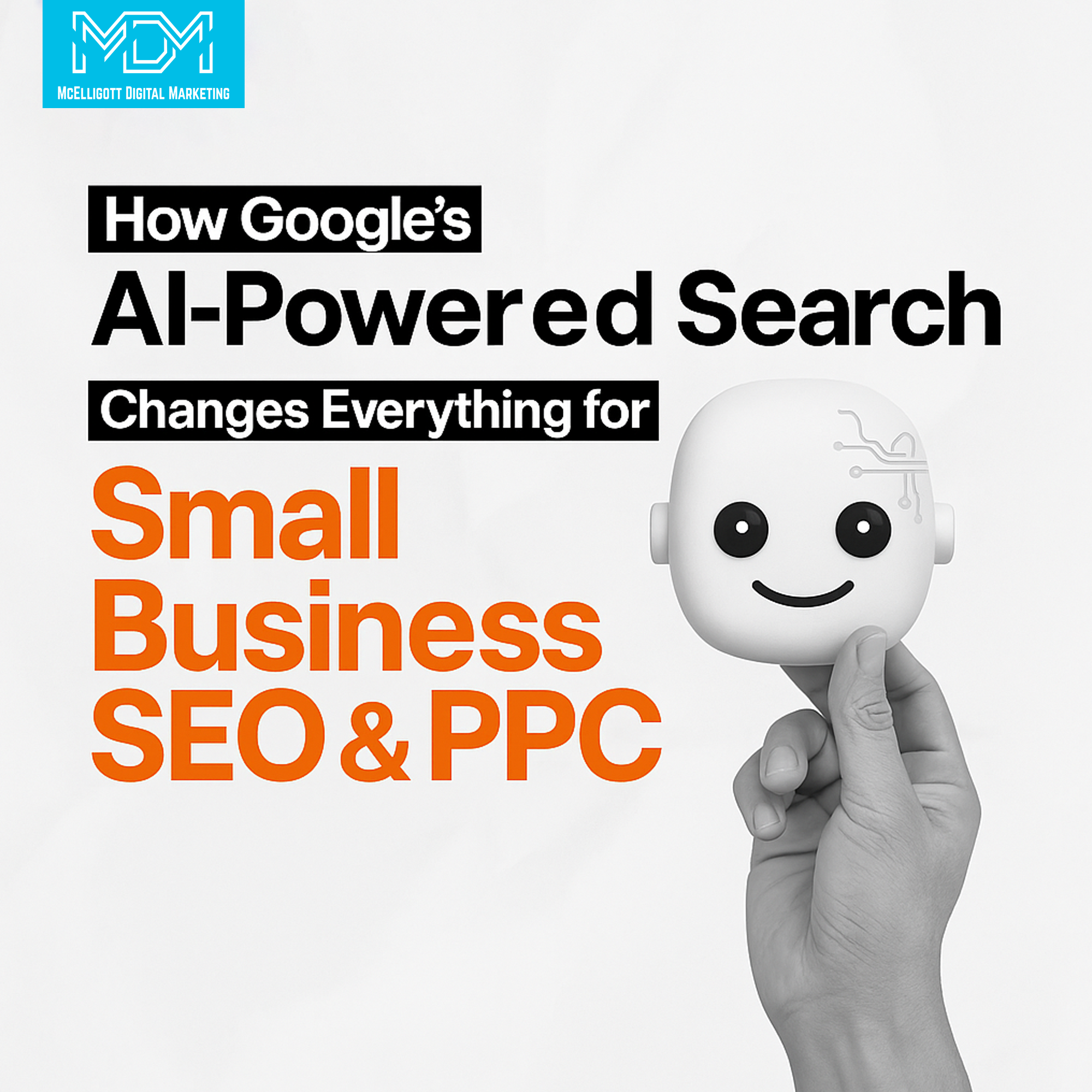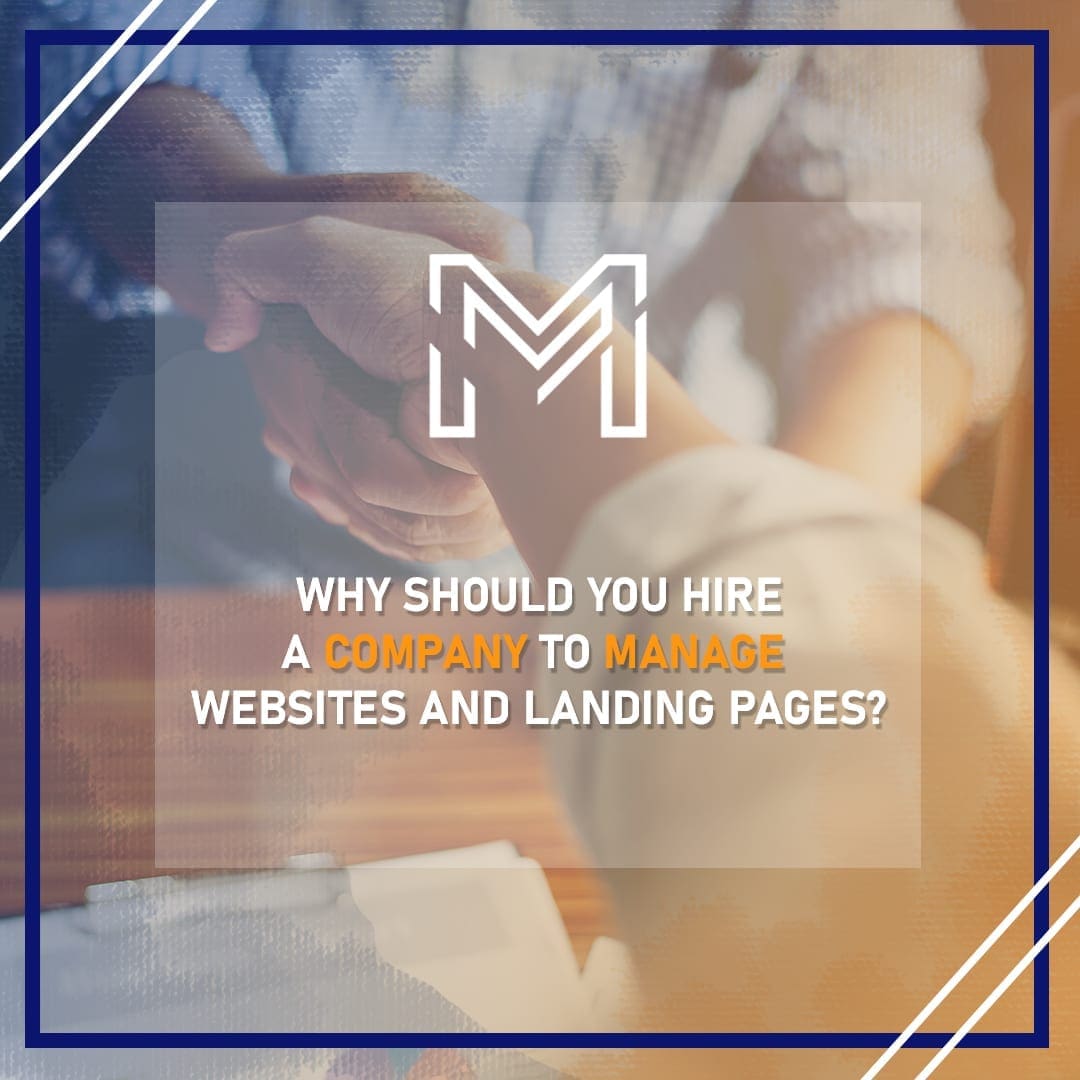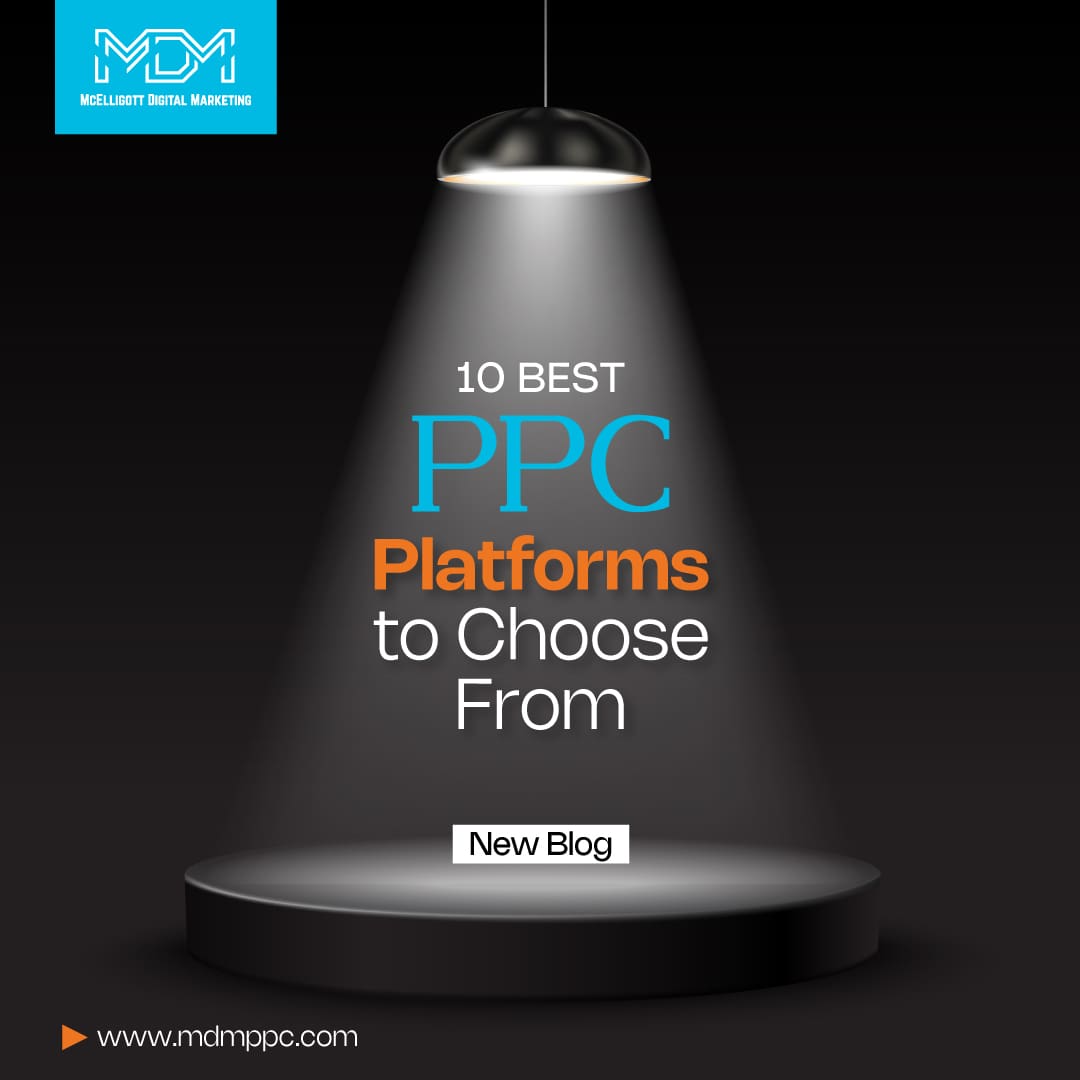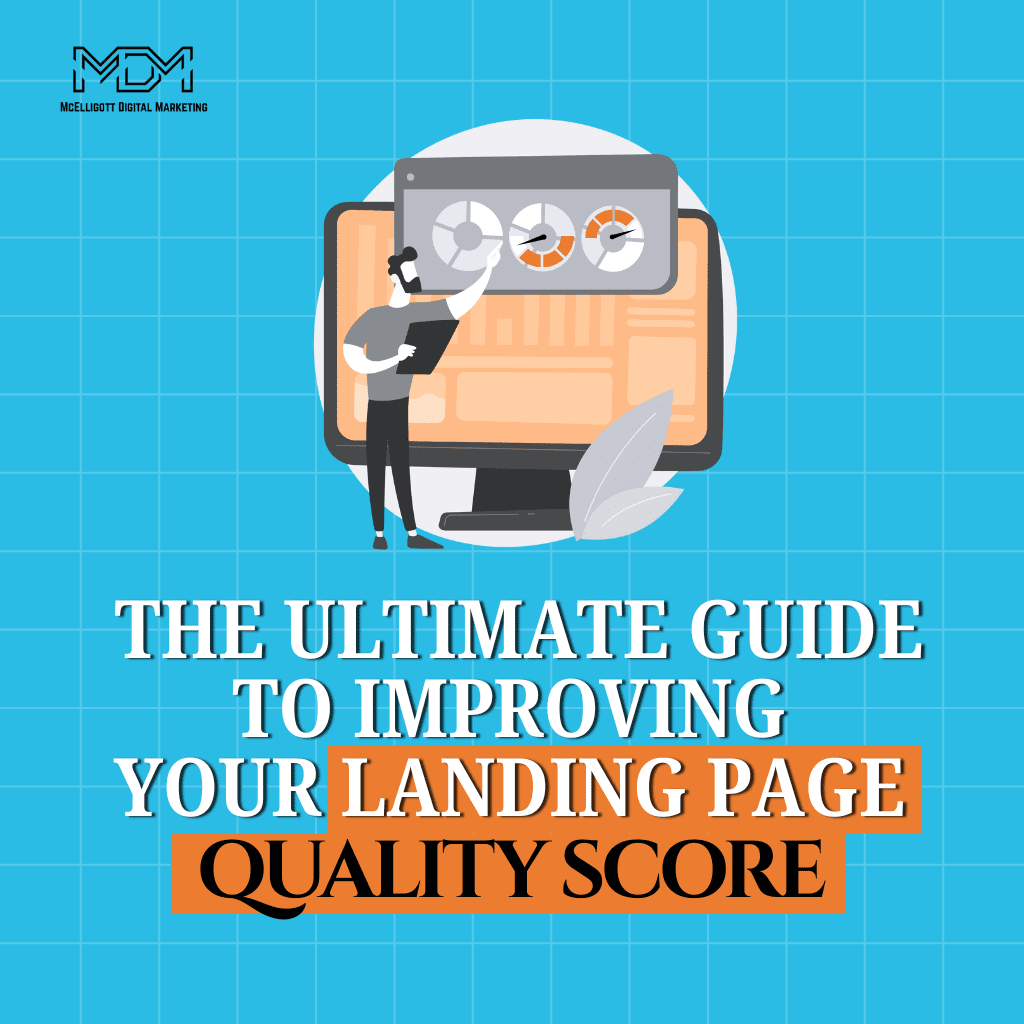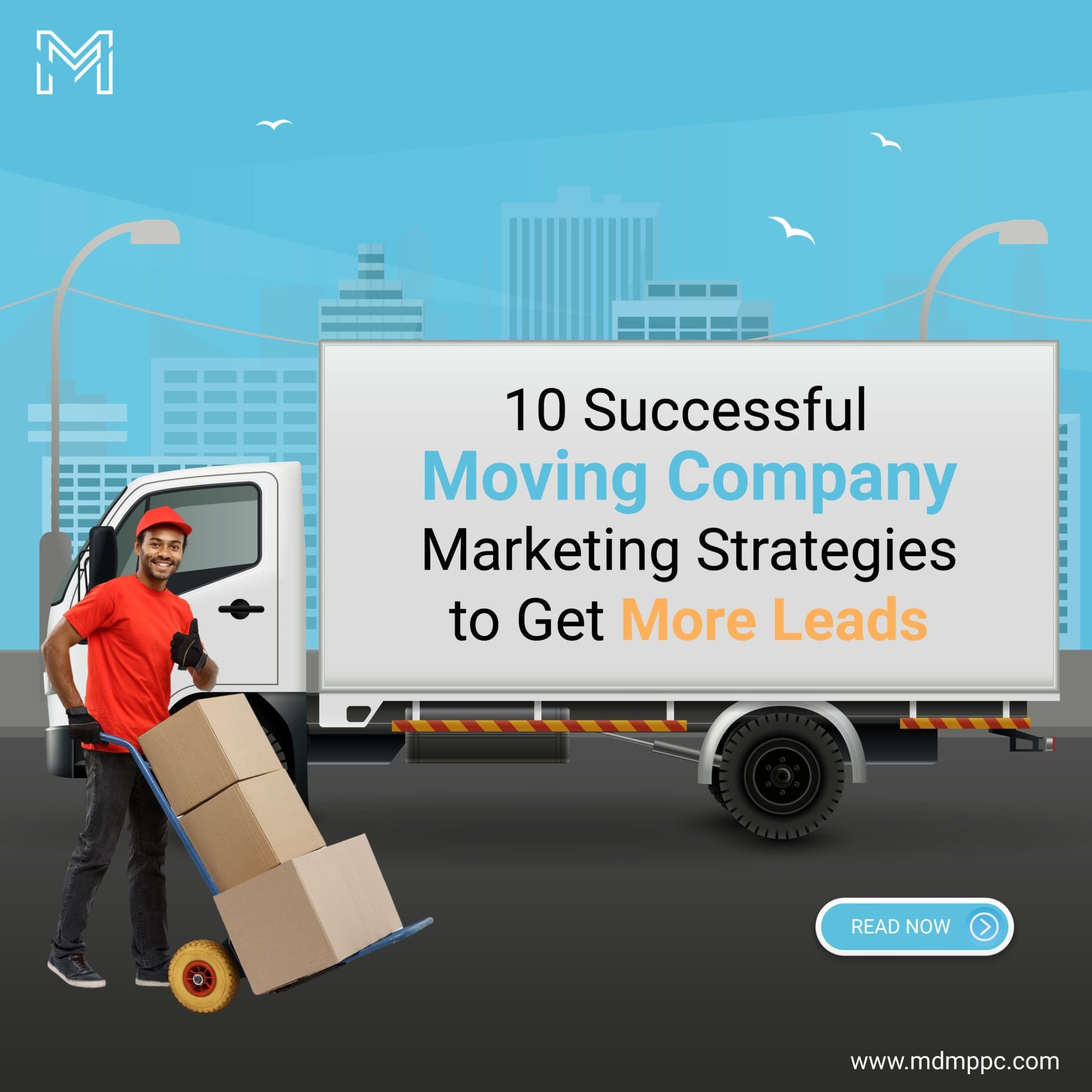Google’s search engine is undergoing its biggest shift in years. With the rollout of AI Overviews and the Search Generative Experience (SGE), users are now getting instant, AI-generated answers often without clicking on a single website.
For small businesses that rely on SEO or Google Ads, this means less organic visibility and more competition for ad space. But with change comes opportunity. Businesses that understand how AI search works and adapt quickly can still stand out.
In this blog, we’ll break down what Google’s AI-powered search actually is, how it’s changing SEO and PPC, and the smart steps small businesses can take to stay visible and competitive in 2025 and beyond.
What is Google’s AI-Powered Search?
Google’s AI-powered search is built on the Search Generative Experience (SGE) , a feature that uses artificial intelligence to generate quick, conversational answers right at the top of search results.
Instead of showing a list of links, Google now summarizes information from across the web using AI Overviews, giving users instant insights without needing to click through.
It’s powered by large language models (LLMs), meaning it understands natural language, context, and follow-up questions changing how people search, and how businesses need to show up.
The New SEO Reality for Small Businesses
The SEO landscape is shifting fast. With Google’s AI now answering user queries directly, traditional tactics like keyword stuffing and chasing snippets are losing their punch.
For small businesses, staying visible means rethinking how content is created, structured, and trusted by AI.
Here’s what that new reality looks like :
A. Decline of Traditional SEO Tactics
For years, SEO success meant ranking on page one and earning that coveted top spot. But with AI Overviews now appearing at the top of many search results, users often get their answers without ever clicking a link. This shift is leading to a noticeable decline in organic click-through rates (CTR) even for well-optimized content.
Featured snippets, once seen as the golden ticket to visibility, are also being replaced or absorbed by AI summaries. In many cases, your content may still be referenced but it’s buried beneath a generated response, reducing your traffic potential.
If your SEO strategy still relies heavily on outdated metrics like keyword density or meta tag optimization, it’s time to evolve.
B. Rise of Semantic and Intent-Driven Content
The new search experience is powered by natural language understanding, meaning Google now prioritizes content that aligns with user intent, not just keywords.
This means:
- Content must answer real questions clearly and comprehensively
- Pages should focus on specific topics, not broad keyword stuffing
- Conversational queries and long-tail keywords are gaining more importance
In other words, content needs to be written for humans first and for AI second. If your website offers vague, generic information, it’s unlikely to be selected by AI as a trustworthy source.
But if your page dives deep into a user’s specific question or problem, your chances of getting featured increase.
C. Authority and Trust Matter More Than Ever
In a world where AI decides what to display, credibility is currency. Google’s emphasis on E-E-A-T (Experience, Expertise, Authoritativeness, and Trust) has never been more critical.
To build authority in the eyes of AI:
- Create content written by experts or clearly showcase author credentials
- Back up claims with data, studies, or trusted sources
- Add FAQs, structured sections, and citations to make your content easy to parse
Think of it this way: Google’s AI is curating answers from what it believes are the most trustworthy sources. If your content isn’t seen as accurate, authoritative, and helpful, it won’t make the cut.
How PPC Is Evolving with AI Search
As organic space gets tighter, PPC is becoming more competitive and more complex. With AI Overviews pushing both ads and organic listings further down the page, small businesses need to rethink how they approach paid search if they want to stay visible and profitable.
A. More Competitive Ad Space
AI Overviews now occupy top-of-page real estate that once belonged to paid ads. As a result, your Google Ads may show lower on the screen or get overlooked entirely if they’re not hyper-relevant.
This shift is causing:
- Increased competition for fewer high-visibility ad spots
- Higher cost-per-click (CPC) as more businesses lean on PPC to make up for organic traffic loss
- A growing need for laser-targeted messaging and better ad quality scores
If your PPC campaigns haven’t been refreshed recently, now’s the time to rethink how your ads compete in an AI-dominated layout.
B. Smarter Targeting = Smarter Spending
The upside? Google Ads is evolving with AI, too.
Newer features like Performance Max campaigns and automated bidding strategies help advertisers:
- Reach users across search, display, YouTube, and Maps—all from one campaign
- Use AI to predict buying intent and serve more relevant ads
- Optimize placements in real time based on behavior and context
But even with smarter automation, success still comes down to the fundamentals:
- A compelling, relevant ad message
- A high-converting landing page
- Clear, measurable goals
Small businesses that combine automation with smart strategy will have the upper hand—not just in reach, but in ROI.
Opportunities Hidden in the Chaos
Yes, AI-powered search is disrupting the way users interact with Google but it’s not all bad news. In fact, small businesses have more chances than ever to stand out by being strategic, specific, and smart about how they show up in search.
Here are three key opportunities hiding in plain sight :
A. Local SEO Advantage
While AI Overviews dominate general and informational searches, local searches still rely heavily on location data and Google Business Profiles (GBP). For example, when users search for “dentist near me” or “best pizza in Austin,” Google still serves up map packs, reviews, and local listings above the AI-generated content.
That’s a huge win for local businesses.
To make the most of this:
- Keep your Google Business Profile updated with hours, services, photos, and FAQs
- Collect and respond to reviews regularly
- Add location-specific content to your website (e.g., neighborhood pages or blog posts)
- Use local keywords in your site copy and metadata
Pro tip: Google’s AI often pulls data from GBPs and local citations when summarizing answers. Make sure your business is showing up consistently across all platforms.
B. AI-Friendly Content Formats
One of the best ways to increase your visibility in an AI-powered search landscape is to make your content easy for AI to read, understand, and reference. This doesn’t mean dumbing it down, it means structuring it smartly.
Here’s what helps:
- Use bullet points and numbered lists to organize key information
- Include FAQs with clear, concise answers
- Break up content with descriptive subheadings (H2s and H3s)
- Keep paragraphs short and skimmable
Think about how AI “reads” content. Structured, organized information is more likely to be selected and summarized in AI Overviews than long, rambling blocks of text.
Bonus: These same practices also improve user experience and SEO performance, making your content more engaging for both bots and humans.
C. Leveraging Long-Tail Keywords & Niche Questions
Here’s where small businesses can truly outshine big competitors: long-tail keywords and hyper-specific queries.
AI-generated answers are particularly strong at addressing detailed, conversational questions exactly the kind of queries users are typing (or voicing) into Google.
For example:
- Instead of targeting “best yoga mats,” aim for “best eco-friendly yoga mats for beginners under $50”
- Instead of “home renovation,” write content like “how to renovate a small kitchen in a 2BHK apartment”
These niche topics:
- Face less competition
- Signal clear intent
- Help your business get featured in specific, relevant AI Overviews
By understanding what your audience is really asking and answering those questions clearly you position yourself as a trusted source of information. And that’s exactly what Google’s AI is looking for.
Action Plan: What Small Businesses Should Do Now
AI-powered search is here and it’s not going away.
For small businesses, this shift can either be a setback or a chance to get ahead. The key is to act now, not later.
Here’s a practical, step-by-step action plan to help you stay competitive in this new search landscape:
1. Audit Your SEO for AI-Readiness
Start by reviewing your current SEO strategy through the lens of AI.
Ask yourself:
- Does your content clearly answer specific user questions?
- Are your pages structured with proper headings, short paragraphs, and scannable formats?
- Are you targeting topics your audience is actually searching for?
AI rewards well-organized, authoritative content that serves real user intent. A content audit can help identify gaps, outdated pages, or keyword-focused blogs that need a deeper, more helpful rewrite.
Pro tip: Prioritize updating high-traffic or high-potential pages first.
2. Invest in Intent-Driven Content
In the age of AI, intent > keyword.
Focus on creating content that aligns with what users want to accomplish whether it’s learning something, comparing options, or making a purchase. That means:
- Writing blog posts that directly answer niche, long-tail questions
- Using tools like “People Also Ask” or your Google Search Console queries to uncover intent
- Addressing the why, how, and what’s next of a topic not just the basics
Think beyond traffic. Think about serving the user better than AI can summarize.
3. Revisit Your PPC Campaigns
Paid search is evolving too and your campaigns need to evolve with it.
Here’s where to start:
- Review your current campaigns for performance and relevancy
- Test Performance Max campaigns to tap into AI-powered automation
- Focus on ad copy that clearly matches user intent and pain points
- Optimize your landing pages for clarity, speed, and conversion
Also consider how your PPC and SEO strategies can support each other. For example, use high-performing paid keywords to inform future organic content.
4. Add Structured Data / Schema Markup
Structured data helps Google and AI understand your content better. Adding schema to your pages increases the chances of:
- Getting featured in rich results
- Being cited in AI Overviews
- Enhancing visibility for FAQs, reviews, events, and more
Start with the basics:
- Local Business schema
- FAQ Page schema
- Product or Service schema
- Article or Blog Posting schema
You don’t need to mark up every page, but even small improvements can help AI pick up your content more easily.
5. Leverage AI Tools (Responsibly)
AI tools can support your marketing efforts but they shouldn’t replace your human expertise.
Use them to:
- Speed up content outlines or keyword research
- Brainstorm blog topics or meta descriptions
- Automate repetitive PPC tasks like bid adjustments or ad testing
But remember: AI-generated content still needs a human voice. Always review, fact-check, and refine before publishing. Google rewards original, trustworthy content not mass-produced fluff.
Conclusion
AI-powered search isn’t the end of SEO or PPC, it’s the evolution of both. For small businesses, adapting means more than just tweaking keywords or bidding strategies. It means creating smarter content, refining paid campaigns, and building genuine trust with every touchpoint.
This shift rewards clarity, intent, and authenticity giving agile businesses a real chance to shine.
Start small, stay consistent, and optimize with purpose.
Need help adapting your strategy to this new search landscape?
Let’s build your AI-ready SEO and PPC roadmap together.
FAQs
1. Is SEO still important now that Google uses AI Overviews?
Absolutely. SEO is still how you get discovered but now it’s about quality, structure, and intent. Content that answers specific questions clearly and builds trust is more likely to be pulled into AI Overviews.
2. Why is my website traffic dropping even though I rank well?
Because users are getting answers without clicking. AI Overviews summarize content at the top of search results, which means fewer visits even if you’re ranking. To stay visible, your content must be clear, structured, and contextually relevant.
3. Do Google Ads still work in an AI-dominated search?
Yes, but strategy matters more than ever. With limited space, ads need high relevance, great copy, and strong landing pages. Smarter targeting and formats like Performance Max help you stay competitive in a crowded space.
4. How can small businesses stand out in AI-powered search?
By getting specific. Focus on niche, long-tail keywords, answer real customer questions, and optimize for local intent. Structured content and schema markup give your site a better shot at being featured in AI summaries.
